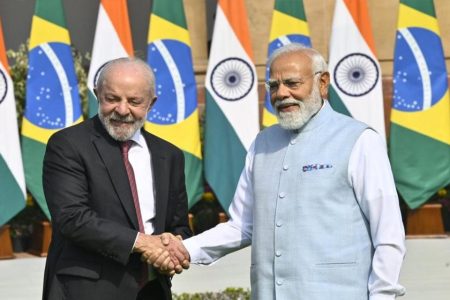The Angolan government is under fire for splurging on football friendly, critics decrying the gross mismanagement of public resources, reports Observador.
The Friday match between Argentina and Angola, organised in celebration of the 50th anniversary of the country’s independence, is estimated at a total cost of over US$25 million. An open letter from Angolan civil society groups claims that such excessive spending “blatantly clashes with the grave socioeconomic reality the country faces.” According to data cited in the letter, the Angolan government spent US$10–12 million to secure Argentina’s presence for the Luanda match and another US$13.6 million for the refurbishment of the 11 de Novembro National Stadium.
Five groups signed onto the letter: the Lutheran Association for the Development of Angola (ALDA), Omunga Association, Organization for the Observatory for Social Cohesion and Justice, UYELE Association, and Friends of Angola (FOA). They accuse the government of prioritising flashy large-scale sporting events over the basic needs of Angolan people.
[See more: FIFA ASEAN Cup to unite Southeast Asia through football development]
“This practice constitutes an affront to the principles of social justice, public accountability and good governance,” the letter emphasised, displaying “a profound disconnect between political decisions and the real needs of the Angolan people.” The organisations demanded “full transparency regarding all costs and contracts related to the event and the stadium works,” a reassessment of budget priorities, the implementation of independent audit mechanisms, and the reaffirmation of sport’s role “as an instrument of social cohesion and inclusion.”
Opposition party UNITA echoed condemnation of the match, Navita Ngolo pointing out that while millions are poured into football, “thousands of Angolan children continue to die every day from hunger, cholera, malaria and lack of basic sanitation.” According to the 2025 Global Hunger Index, more than a fifth (22.5 percent) of Angolans are malnourished and nearly half of children under 5 (47.7 percent) are stunted. More than half (53 percent) of the population live on less than US$3.65 a day.
This is not the first time the match has drawn criticism. Back in mid-August, FOA and three other organisations wrote an open letter to the Argentine Football Association, the national team and Messi urging the cancellation of the November match. That letter came after weeks of protest over a fuel price hike faced a brutal police crackdown, resulting in at least 30 people killed, over 270 injured and some 1,500 arrests. Organisations including Human Rights Watch and the UNHCR sharply criticised the government response to largely peaceful demonstrations.






